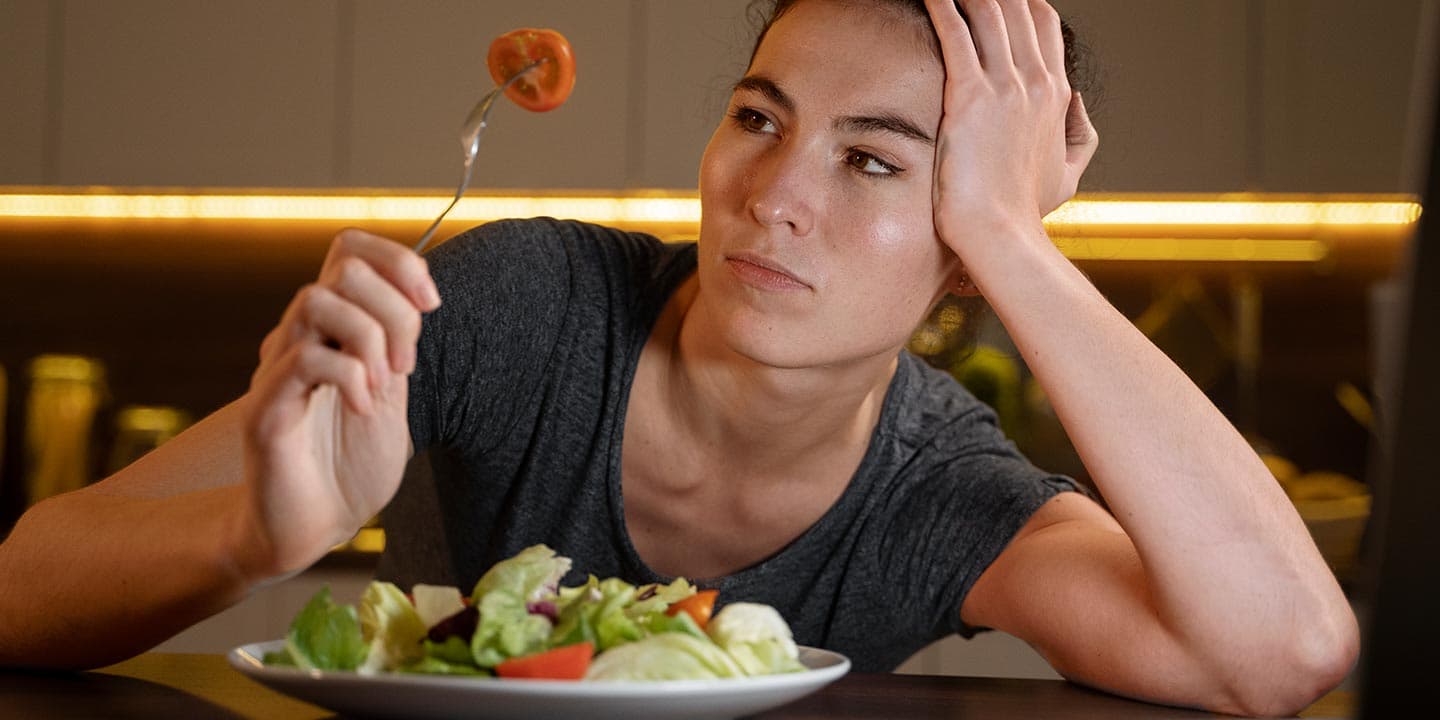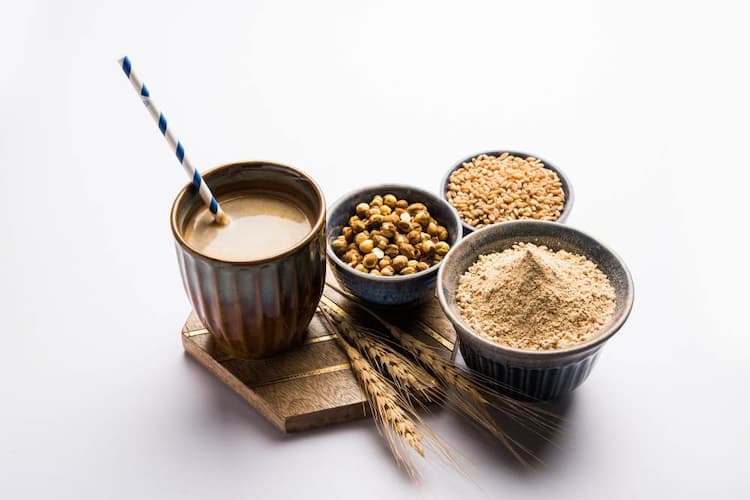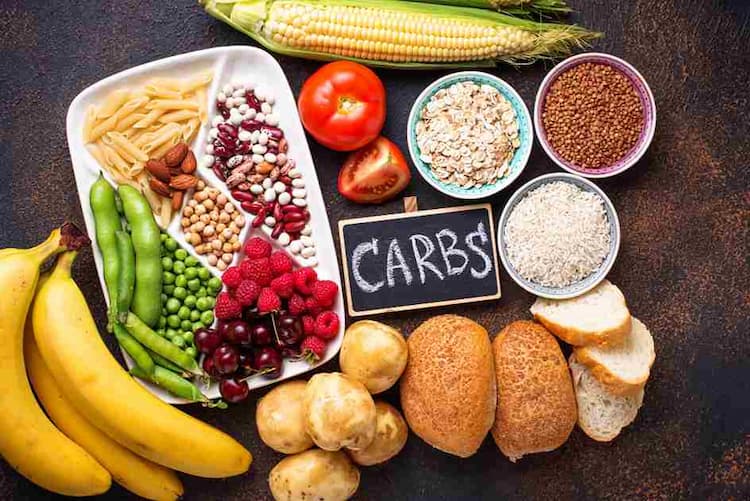Foods That Help Reduce Anxiety - Redcliffe Labs

Medically Reviewed By
Dr. Ragiinii Sharma
Written By Prekshi Garg
on Aug 31, 2022
Last Edit Made By Prekshi Garg
on Mar 18, 2024

Are you experiencing constant worry, anxiety, or fear? Are these overwhelming symptoms hampering your daily activities? While occasional anxiety is a normal part of life, having these sudden overwhelming feelings can be a red flag. Persistent or continuous fear and worry about simple activities can lead to intense anxiety that requires medications and therapy.
These repeated episodes of sudden panic outbursts are sometimes difficult to handle, can last long, and pose danger. Some may require a change of place or situation to move out of these panic attacks. And some may also have these symptoms in their early childhood or teen years and they can continue into adulthood.
Certain healthy food habits can help prevent and reduce intense anxiety symptoms. This article explores the nutrient-rich vegetables, fruits, and other foods that help reduce stress and anxiety.
What is Anxiety?
Anxiety is the body’s natural response to situations of stress, tension, worry, and panic. It is one of the most common conditions affecting almost everybody at one point in their lifetime. The symptoms of anxiety vary between person-to-person and also depend on the situation. However, intense anxiety is a condition that can cause panic and worry very often in a person every day, even in a simple situation.
Anxiety is a relatively broad term involving tension, fear, worry, social anxiousness, and some phobias. A person experiencing anxiety symptoms for more than six months is likely to have a generalised anxiety disorder or GAD.
Some of the symptoms of GAD are:
- Constant worry about everyday events or problems,
- Irritability,
- Fear,
- Concentration difficulties,
- Tension,
- Heart palpitations,
- Problems with social, personal, and work life,
- Muscle tensions,
- Chest tightness,
- Increased heart rate.
These symptoms of GAD are usually attributed to previous traumatised life experiences or genetic factors that require long-term treatment, including cognitive behavioural therapy (CBT), Medications. However, researchers also believe that nutritional intervention with therapeutics can help relieve anxiety symptoms or GAD.
Without an intervention these feelings can start showing physical signs as well. Early intervention through medication, therapy, and regular health-check ups can help prevent adverse neurotic and life-threatening conditions.
List of Foods that lower anxiety
Healthy diet practices always help maintain a sound body and mind. Some foods help support the brain and nerve functions while lowering anxiety symptoms. Changing to a healthier dietary pattern with nutrient-rich foods can help ease anxiety to a greater extent. Here are some research-based foods that reduce anxiety.
Fatty fish, high in Omega-3s
Omega-3 fatty acids are commonly linked to improved cognitive function and are a promoter of mental health. People who take in high omega-3s have fewer chronic conditions, inflammation, and healthier microbiomes. Fatty fishes, such as salmon, mackerel, sardines, trout, and herring, are rich sources of omega-3.
According to research, omega-3-rich foods contain alpha-linolenic acid (ALA) or a combination of eicosapentaenoic acid (EPA) and docosahexaenoic acid (DHA). EPA and DHA are two essential fatty acids and neurotransmitter regulators that initiate anti-inflammatory responses and improve healthy brain function.
However, excess EPA and DHA supplementation can negatively impact anxiety levels than natural foods. And so, natural sources of omega-3 with a minimum of two servings of fatty fish per week can act as potential anti-anxiety foods. Another study showed long-term salmon consumption at least three times a week significantly moderated anxiety symptoms.
Vitamin D, a daily dose requirement
Vitamin D deficiency is commonly linked to mood disorders, anxiety, depression, and mental stress. Salmon, sardines, breakfast cereals, egg yolks, soy, rice, hemp, dairy products, and almond milk are a few among the vitamin D sources.
Not to forget the natural source of vitamin D- the sun. Getting a daily dose of sun rays into the body can help replenish your daily vitamin D requirement. Many consider vitamin D supplementation as well.
Studies done on pregnant women and the older population show how increased vitamin in the blood has improved mood changes, and sleep quality while decreasing depression and anxiety symptoms.
Egg yolks, the protein source
As mentioned earlier, egg yolks contain vitamin D, an essential vitamin that enhances mental health. Eggs are excellent protein-packed foods that reduce anxiety and depression.
Proteins are long chains of amino acids that essentially contribute to the body's growth and development. Eggs have tryptophan- an amino acid that makes serotonin. Serotonin is a neurotransmitter that helps modulate mood, sleep, memory, and behaviour.
Researchers believe the protein triggers a sequence of chemical reactions that boosts serotonin production and positively impacts brain function while reducing anxiety symptoms. Other protein-rich foods for anxiety include nuts, cheese, lentils, legumes, and red meat.
Pumpkin seeds, potassium-fortified food
Potassium helps maintain an electrolyte equilibrium in the body. It also regulates blood pressure. Low levels of potassium and magnesium in the body cause high cortisol generation ( a stress hormone) from the adrenal glands that promote stress and anxiety.
Potassium-rich foods that relieve anxiety and stress include bananas, spinach, broccoli, potatoes, avocados, and pumpkin seeds. Pumpkin seeds are also excellent sources of zinc- an essential mineral for brain and nerve development.
Zinc levels are adequately concentrated in the regions of the brain associated with emotions. An increase in zinc levels can help decrease mood disorders, anxiety, and depression.
Dark chocolate, rich in polyphenols
We often indulge in chocolates when we are in a bad mood or stressed. Experts believe dark chocolate is an exclusive food for depression and anxiety as the cocoa in chocolate pumps up moods and helps overcome depression while stimulating the gut-brain axis.
Dark chocolate is a good source of polyphenols- a flavonoid that helps reduce inflammation of nerves and senescence of brain cells while mitigating proper blood flow to the brain. Chocolate also contains tryptophan, which creates serotonin, the mood-enhancing neurotransmitter.
Dark chocolate with more than 70% cocoa also contains magnesium, a micronutrient that brings down stress and anxiety levels. However, dark chocolate has sugars and fats. Hence, intake of small servings of 1-3 grams is ideal.
Turmeric, curcumin containing spice
Curcumin in turmeric is an anti-inflammatory and an antioxidant. This active ingredient suppresses anxiety and oxidative stress. A study demonstrated that curcumin increases DHA in the brain, promotes anxiety reductions, and prevents it even in obese people.
Turmeric is an easy-to-include ingredient in various dishes and is a common spice used in Indian and South Asian cooking. It goes well, as its minimal flavour blends with smoothies, curries, and various dishes.
Chamomile, fortified anti-anxiety properties
Chamomile tea is a healthy drink made of a medicinal herb. Chamomile contains flavonoids that relax the mind. They have anti-inflammatory, antioxidant, and antibacterial characteristics that calm the nerves and prevent unnecessary neural stimulations.
A study also highlights how long-term drinking 1,500 mg of chamomile extracts a day considerably reduces anxiety signs. Chamomile tea is safe to drink even in high doses, and its anti-anxiety properties mitigate anxiety.
Yoghurt, gut microbiota booster
Studies show that fermented foods help reduce anxiety among the young population. Fermented foods have healthy bacteria that increase the happiness quotient in the body. Fermented foods that help with anxiety are pickles, cheese, wine, dosa, idli, fermented soy, and yoghurt. These foods promote a natural gut microbiome and relieve stomach issues, stress, and anxiety. It also helps alleviate neuroticism (symptoms of anger, emotional instability, depression) and social anxiety.
According to a clinical review, yoghurt produces anti-inflammatory responses against chronic neuroinflammation responsible for stress, depression, and anxiety. Healthy bacteria, such as Lactobacillus and Bifidobacteria, positively affect the brain and emotional health.
Green tea, a mind-calming effect
Green tea contains theanine, an amino acid build-up that stimulates neurogenesis, anti-stress and calming effects by increasing happy hormone production like serotonin and dopamine.
Green tea- referred to as mood and brain food, is traditionally known to induce mental clarity, cognitive function, physical activation, and relaxation. It is a potential alternative for soft drinks, caffeine, and alcoholic beverages.
Brazil nuts, high in selenium
Selenium improves mood and diminishes inflammation caused in response to anxiety and other mood disorders. Brazil nuts are high in selenium, an antioxidant that prevents cellular damage.
Brazil nuts also have vitamin E, an antioxidant that is beneficial for preventing anxiety. Research has shown low vitamin E levels are associated with anxiety in children. Other alternative sources of selenium include other nuts, seeds, mushrooms, soybeans, and animal products.
However, too much selenium is also known to cause side effects. Therefore, its important to note that less than 400 mg of selenium is ideal for an adult.
Other Foods that help reduce anxiety.
Having a balanced diet with foods of all nutrients- carbohydrates, fats, proteins, vitamins, and minerals. Other foods that can help with anxiety are:
- Eggs, cheese, pineapple, banana, oats, and tofu contain tryptophan.
- Almonds, hazelnuts, essential oils, fish -vitamin E fortified foods.
- Chia seeds, cod liver oil, flax seeds, and walnuts are rich sources of omega-3s.
- Protein-filled foods- meat, fish, egg, dairy, nuts, seeds, whole grains, fruits, and vegetables.
- Berries, cherries, citrus fruits, spinach, and other green leafy vegetables are high in magnesium.
Also Read:- Boost Your Health This Summer with These Healthy Summer Foods
Frequently Asked Questions
What foods worsen anxiety?
Processed foods, fried foods, refined cereals, and high-sugar, carbohydrate-rich, high-fat foods are likely to worsen anxiety and depression.
How do I break my anxiety cycle?
One can reverse the anxiety cycle by gradually facing tension and fearful situations. Such steps can consecutively reduce anxiety episodes while improving confidence levels.
How do I get rid of anxiety forever?
You can get rid of anxiety by following some tips,
- If you lack concentration or are overwhelmed with fear and tension- take slow and deep breaths that calm the mind.
- Start to meditate regularly to prevent repeated episodes of fear and anxiety.
- Eliminate foods and beverages that can trigger anxiety
- Go early to bed and maintain healthy sleep hygiene.
- Limit caffeine, carbonated drinks, sugar, and processed foods.
- Exercise and maintain an active routine.
- Involve in social gatherings and be a part of them.
- Avoid indulging in negative thoughts and actions.
Conclusion
Diet is a very important tool for anxiety management. Consuming certain fruits can significantly help bring down anxiety levels along with therapeutics, medication, and meditation.
A healthy diet plays a vital role in altering the gut microbiome and preventing and treating anxiety symptoms. A protein-fortified diet with high magnesium, selenium, vitamin D, E, omega-3s, and flavonoids initiates good hormone production and promotes mental well-being.



